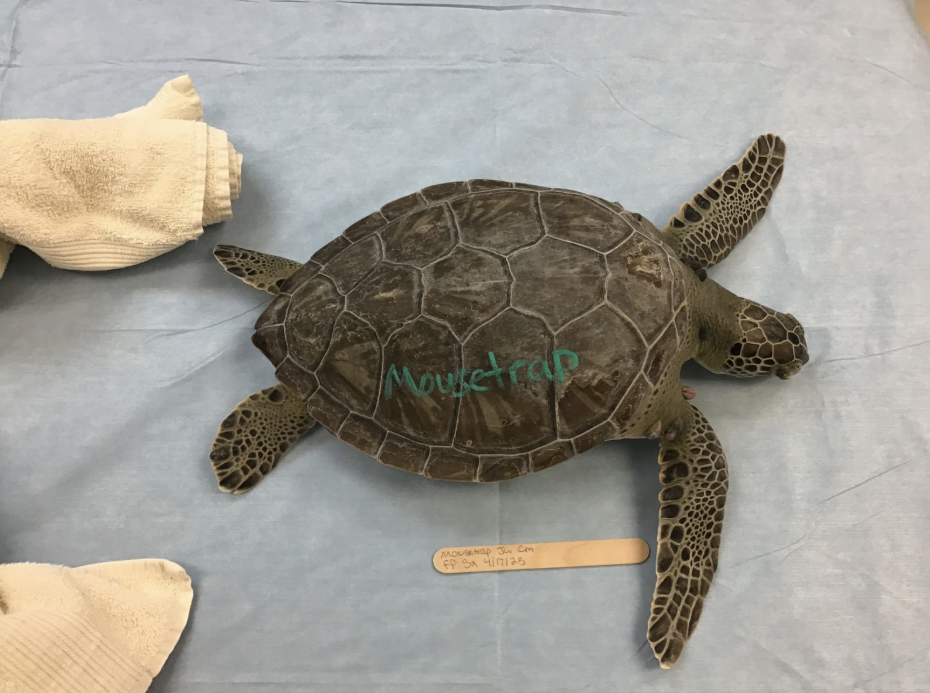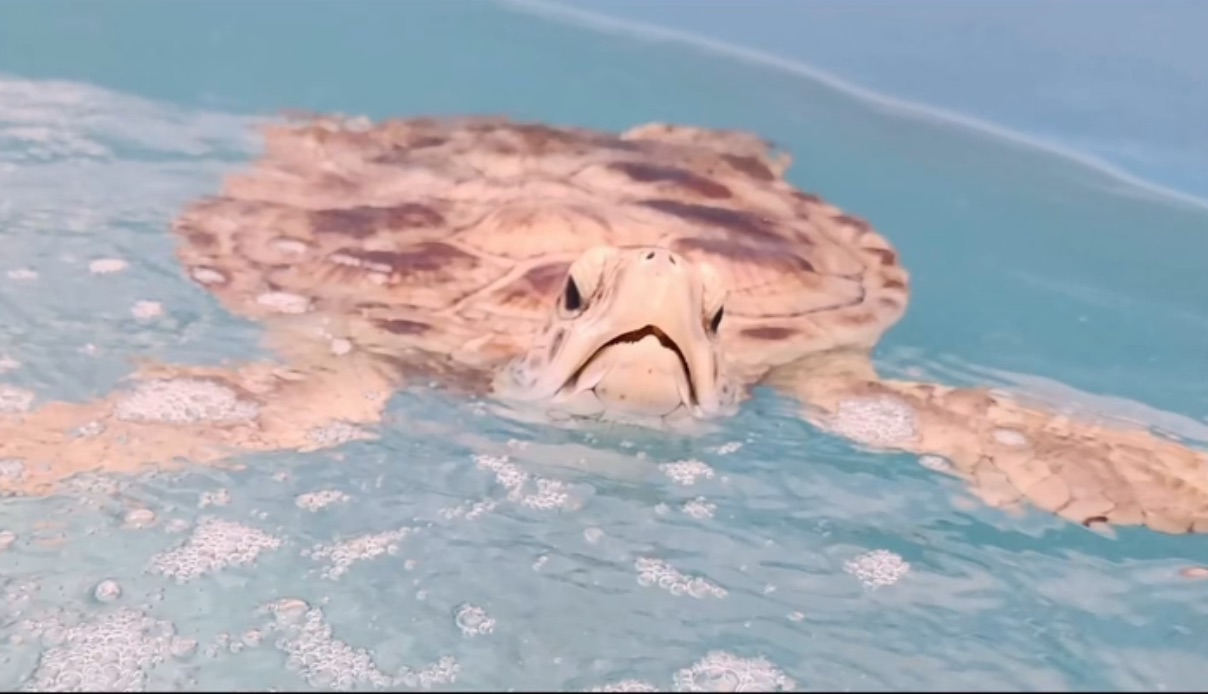Mousetrap


Patient Profile
Name: Mousetrap
species: Green Sea Turtle
weight:
Reason for visit: Cold stunt and fibropapillomas (FP)
Location found: Northern
Status Report
- 1/24/2025- Mousetrap a juvenile green sea turtle was transferred to our facility due to cold-stunning and Fibropapillomas (FP)
- 4/3/2025 - Mousetrap received exam by doctor. Terry
- 4/17/2025 - Mousetrap had some FP tumors removed in surgery with Dr.Terry
- 5/14/2025 - Mousetrap had tumors removed in tumor surgery and received chemotherapy eye drops post eye tumor removal surgery
- 8/4/2025 - nebulizer treatment and is till on chemotherapy eye drops
Release
- On September 11,2025 Lightbulb returned to the big blue ocean off the east coast of Florida after convalescing at The Turtle Hospital over six plus months after being transferred from northern Florida to Cold stunts. we are so happy this little turtle made it back out to sea to continue her adventures out at sea!
Stay up to date with the latest news of the Turtle Hospital by following our Facebook or Instagram online.
